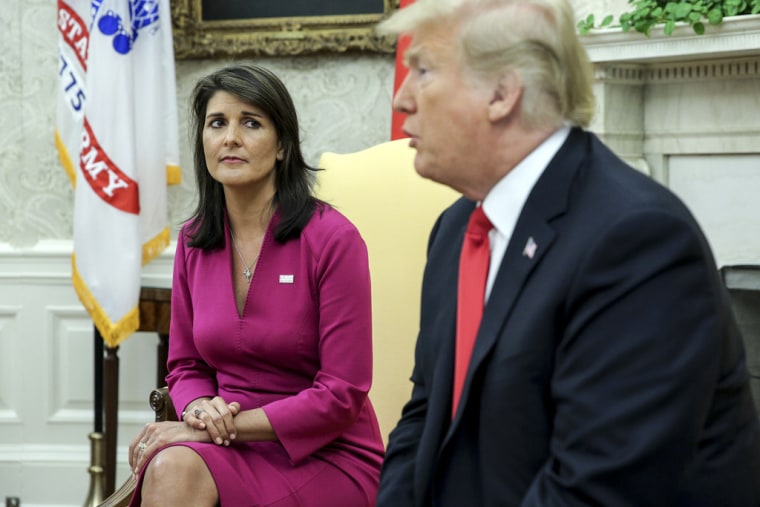As the race for the Republicans’ presidential nomination unfolded, Donald Trump largely ignored former Ambassador Nikki Haley. The South Carolina Republican wasn’t a serious enough threat for the former president to attack her.
But as Florida Gov. Ron DeSantis’ support faded, and Haley climbed, Trump decided in the fall it was time to start deriding her, too. The likely GOP nominee even settled on a nickname: He started calling Haley “birdbrain.”
It was a curious moniker. The former ambassador has a great many flaws, but she does not have a reputation for being dumb. Nevertheless, the former president apparently couldn’t think of a better smear at the time, so he stuck with “birdbrain” for a while.
That is, until Trump decided to take his offensive in a far uglier direction.
Last week, the leading GOP candidate used his social media platform to promote an article that falsely claimed that Haley is ineligible for the presidency because her parents were not U.S. citizens when she was born. This didn’t make any sense — Haley was born in the United States, and under the Constitution’s 14th Amendment, that makes her a natural-born citizen — but Trump apparently didn’t care.
He’s long relied on “birther” attacks — against Barack Obama, Ted Cruz, Marco Rubio, and Kamala Harris — so it wasn't especially surprising to see Trump add Haley to his list.
It was a sign of things to come. Haley, the child of Indian immigrants, has a given name of Nimarata Nikki Randhawa. With this in mind, Trump earlier this week started calling the former ambassador “Nimrada” — a likely deliberate misspelling combining “Nimarata” and “Nimrod.” (The former president continues to display the temperament of an ill-tempered tween.)
This morning, Trump, in a missive ostensibly directed at New Hampshire Gov. Chris Sununu, called Haley “Nimbra” — three times.
As The Washington Post’s Aaron Blake explained in an analysis this week, the familiarity of Trump’s racism adds insult to injury.
It happened with Barack Obama and then Kamala D. Harris. And now it’s come, abruptly, for Nikki Haley. Trump in recent days has applied this altogether familiar playbook to portray his most significant rival in the New Hampshire primary as alien or different.
Trump couldn’t just attack Obama, he’s felt the need to lie about Obama’s birthplace and emphasize the Democrat’s middle name. Trump didn’t just dismiss former Secretary Elaine Chao’s criticisms, he found it necessary to mock her as “Coco Chow.” Trump didn’t just condemn members of the House Democratic “Squad,” he urged its members to “go back” to the countries “from which they came.”
Trump has said he doesn’t generally refer to people as “racists,” but he’s only too pleased to apply the word to Black prosecutors who try to hold him accountable.
For the likely Republican nominee, the vision is unsubtle. There’s an “us” and a “them.” When assessing critics, rivals, and opponents, those he considers to be white belong with the former, and those from communities of color belong with the latter.
“Birdbrain” was juvenile, but more importantly, it was ineffective. It led Trump to lean on a more familiar tactic.
He doesn’t want voters to see Haley — a former prominent member of his own administration — as a rival GOP candidate, he wants them to see her skin color and given name, which in his mind, necessarily makes her “The Other.”
Trump does this because it works. If Republican leaders and officials have a problem with such racist politics, now would be an excellent time for them to say so.

